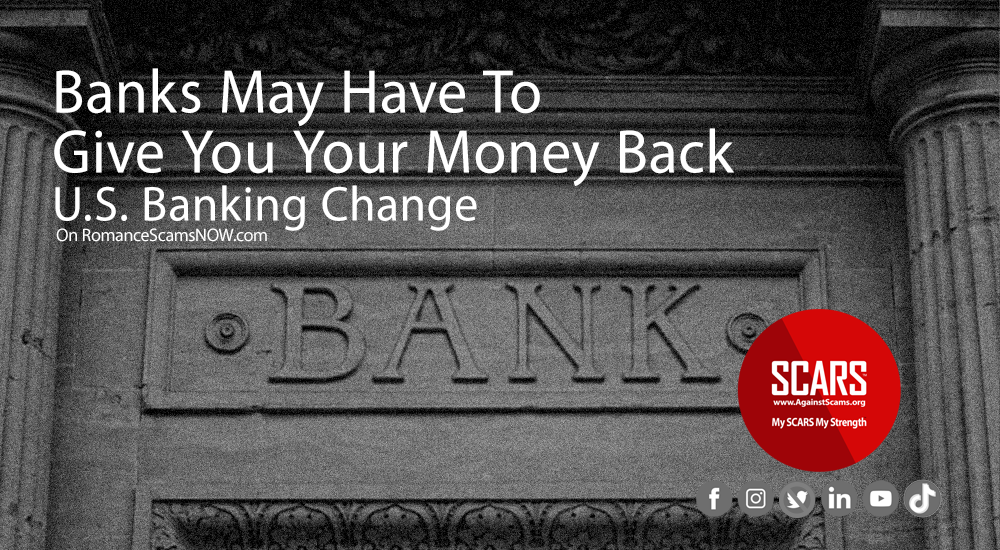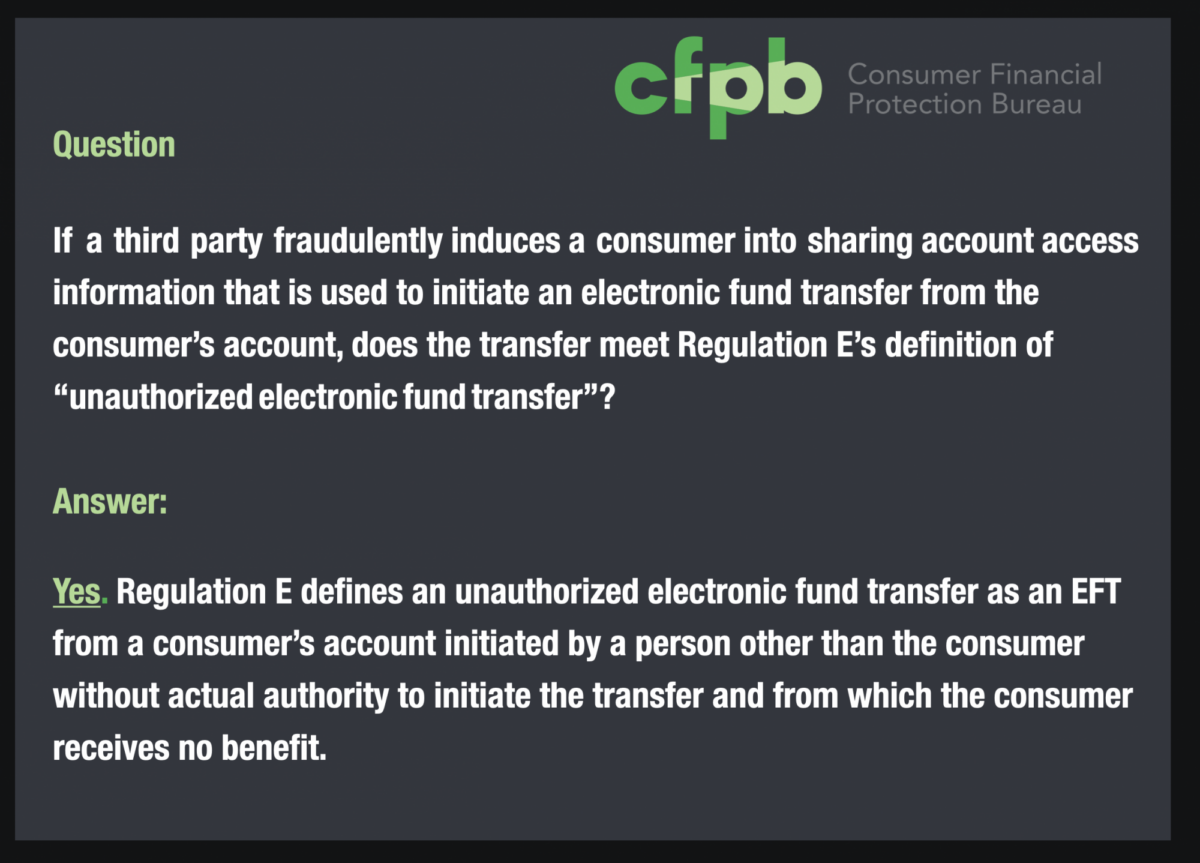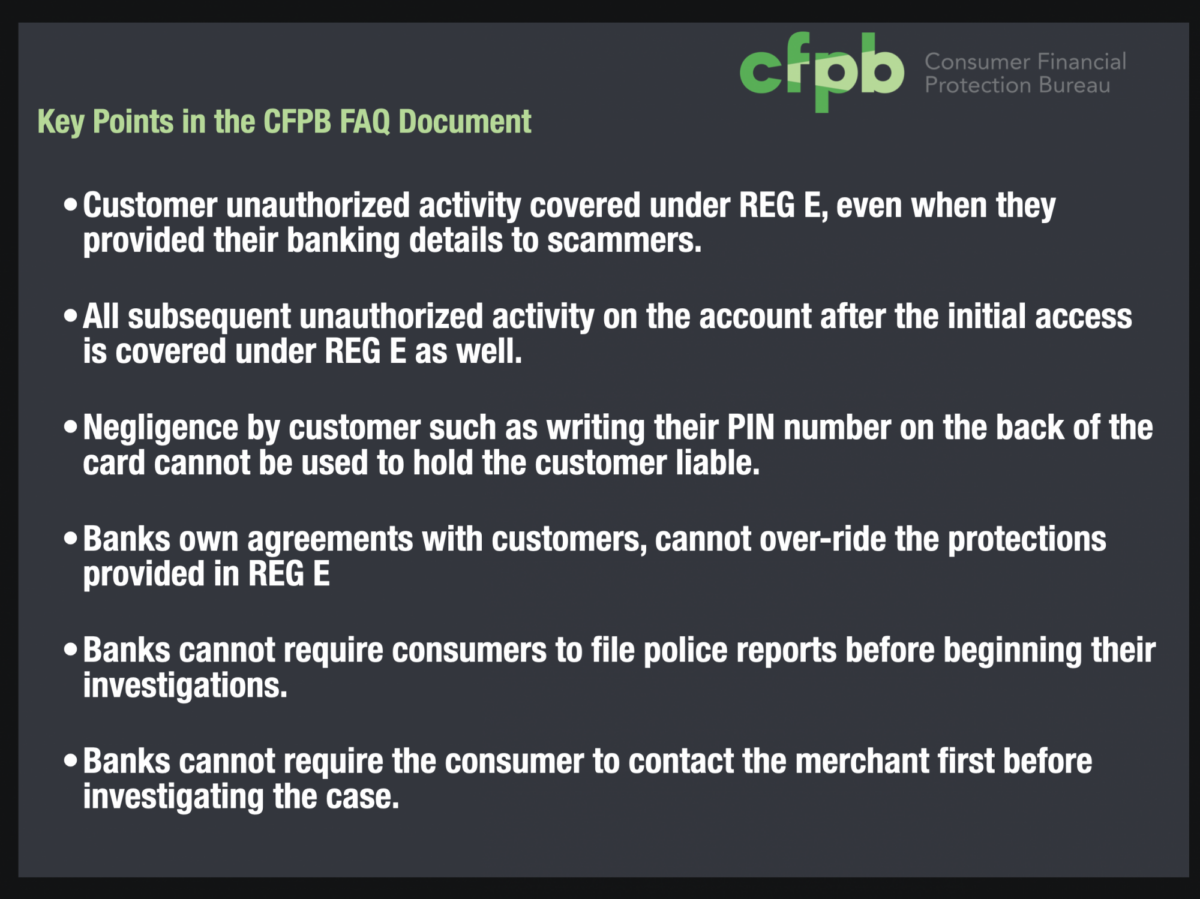A SCARS Money Recovery Alert – U.S. Banking Change
Something Important Has Happened In U.S. Banking That Potentially Affects Scam Victims
United States Banking Regulation
A SCARS Insight
A Seismic Shift Has Happened In U.S. Banking Responsibility For Scams!
IF YOU SENT OR LOST MONEY TO A SCAMMER THROUGH A BANK TRANSACTION OR ACCOUNT YOU SHOULD READ THIS
What is the difference between a fraud and a scam? To consumers, there is no difference. But to banks, it’s a much different story.
Fraud is something banks are liable to reimburse customers for. But the bank customer bears the full loss because the customer got conned and gave out their banking details, and they are the responsible party.
For the most part, banks have been able to shift responsibility for preventing scams to their customers and ignore the problem.
According to The Knoble – a humans rights group dedicated to wiping out financial crimes that impact the vulnerable. [SCARS is a member organization of The Knoble]
A Seismic Shift In Scams Is Afoot
- There has been a seismic shift in scams here in the US and banks may not be able to ignore them any longer. There is simply too much at stake.
- 60 million Americans (about 1 in every 5) will be targeted by phone scams alone in 2021, and the massive losses that they are experiencing are now making their way into the banking system.
- This seismic shift has fraud experts concerned. So much so that they predict that scams will become the number one priority of banks over the next 18 months.
According to The Knoble
A Perfect Storm of Events Converge And It’s Changing The Way Scams Are Viewed
A perfect storm of events is behind the shift. And now scams, not fraud have become banks biggest concern.
- First, scams are hitting historic highs across the US victimizing more Americans than ever before. And many of those scams are perpetrated through the bank accounts of victims.
- Second, those rising rates of scams are causing government agencies like the CFPB to step in and provide more guidance to banks on when they should issue refunds to victims.
- And third, banks are starting to realize that their investment in fraud controls may have just shifted fraud to the weakest link in the chain – their customers.
Here is why this is a turning point for Scam Victims that will change banking forever!
It is because The CFPB Now Applies Reg E To Victims of Some Scams
Something happened this June that could change everything about how banks will look at scams. The CFPB (a U.S. Government Agency) released a FAQ (see below) on electronic funds transfers, and it could very well change the way US Banks refund money to customers that have been victimized. The FAQ clarified that consumers who are induced into providing details about their accounts to fraudsters and scammers are covered under REG E, if any unauthorized activity occurs.
This new guidance by the CFPB seems to change all of that and place more responsibility on banks to accept those fraud claims even when the customer was negligent. This means victims of scams involving Zelle, Debit Cards, Echecks, and Electronic Funds Transfers where their accounts have been drained may now be entitled to get refunds even though they provided their details to the scammers.
The Document Goes Even Further With Consumer Rights and Spells Out Even More Protections
Their document outlines more key areas where banks can’t necessarily put the onus on the customer.
- All subsequent transactions after the first fraudulent transaction are covered under Reg E.
- Banks can’t make a customer file a police report as a condition for investigating their fraud claim.
- Bank’s own agreements with customers can’t override Reg E protections.
- Banks can’t hold a customer liable for negligence such as writing the PIN number on the back of the card.
- Banks can’t require the customer to “work it out with the merchant” before they will accept the claim.
Requiring Refunds To Scam Victims is A Growing Trend
Governments across the world are taking more active measures to ensure that victims of scams are treated fairly by banks. And nowhere is that more evident than in the UK.
In May of 2019, a coalition of 19 consumer brands covering over 85% of bank transfers voluntarily signed up to reimburse customers when they were victims of advanced push payment fraud.
Banks that are part of the scheme include Barclays; HSBC including First Direct and M&S Bank; Lloyds Banking Group including Halifax, Bank of Scotland and Intelligent Finance; Metro Bank; NatWest, including RBS and Ulster Bank; Nationwide; Santander; Starling and The Co-operative Bank.
As of this year 2021, these banks have collectively reimbursed £147 million to their customers in the UK. And banks like Lloyds have reimbursed 99% of their scam victims’ claims according to the bank.
With this new guidance, American Banks look to follow the UK lead in this.
What You Should Now Do!
Because this is a guidance to an existing law, and not a new law, it may be retroactive and potentially cover all banking transactional or account scams.
However, this article is for the purpose of providing awareness and not a legal opinion. We recommend that all victims who were scammed and lost money contact a qualified attorney to review this law and the new FAQ to determine if you might be eligible for a refund from your bank. But even after making a determination, you should be aware that this may or may not be simple – it could involve letter writing and appeals to state regulators or it might involve litigation – these are all things to discuss with your attorney.
What to do now?
- Get yourself and your information well organized. Before you speak with an attorney, you have to have everything prepared that relates to the banking transactions or accounts. Not the chats and lies, just the real hard information. We recommend that you use the SCARS RED BOOK organizer for this (available at the SCARS Store).
- See an attorney that understands how to interact with financial institutions. Your attorney will help you make the determination if this can help you and the strategies that will work best.
- If needed the guidance FAQ and law are linked below.
- You also have the State Banking regulators on your side to help as well – but regardless, you will need an attorney.
Please, understand that SCARS cannot advise you if you qualify for this or not. You must speak with a licensed attorney. Because this is VERY new, you might be the first case that your attorney and bank will have had to face on this. This means that you should expect the banks to resist.
We wish you the very best of luck in this!
Resources
- CFPB Reg E FAQ
- Electronic Fund Transfers (Regulation E) Law
- Consumer Financial Protection Bureau (CFPB) U.S. Government website
- Source for portions of this article: https://frankonfraud.com/





Please Leave A Comment - Tell Us What You Think About This!